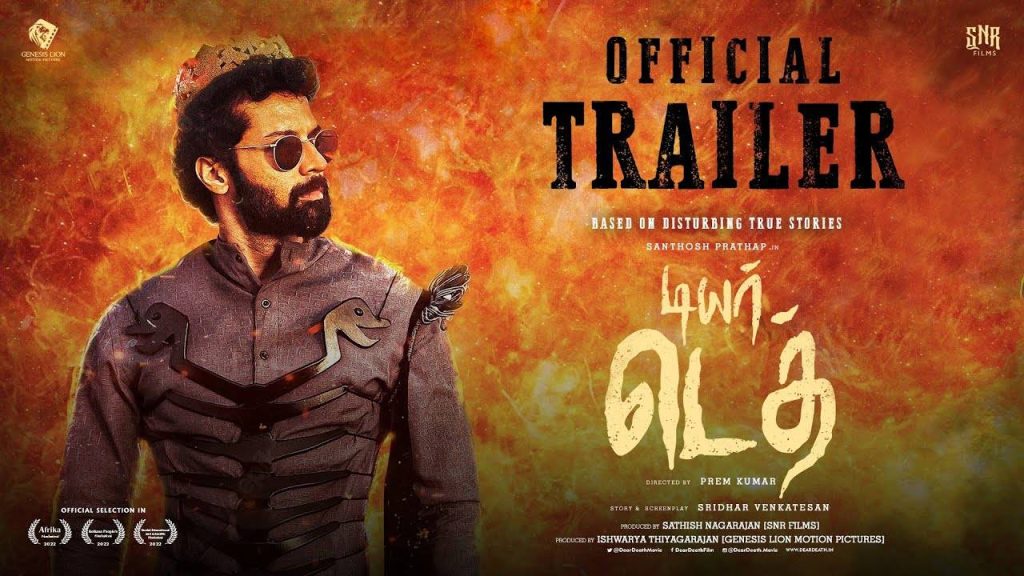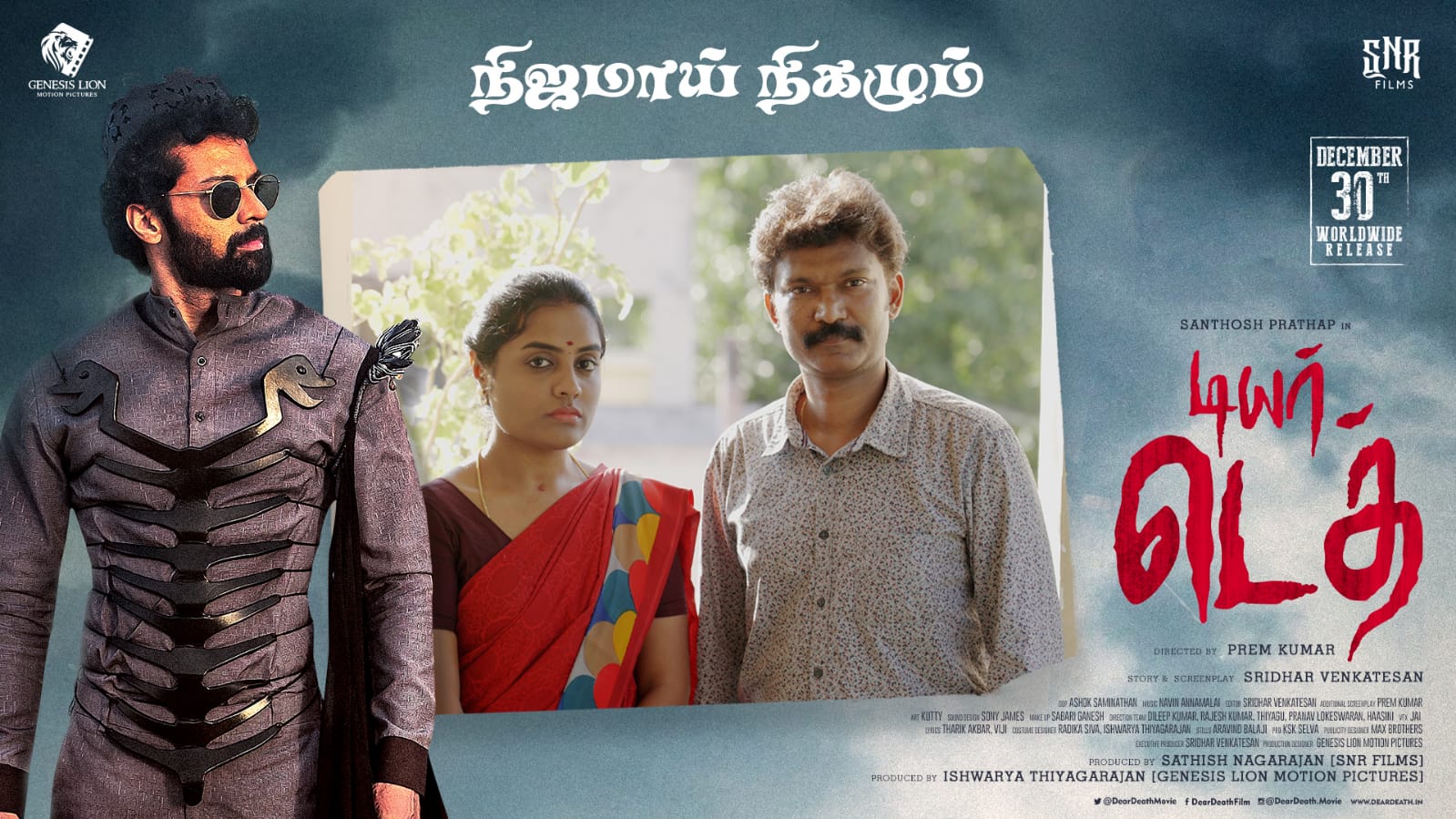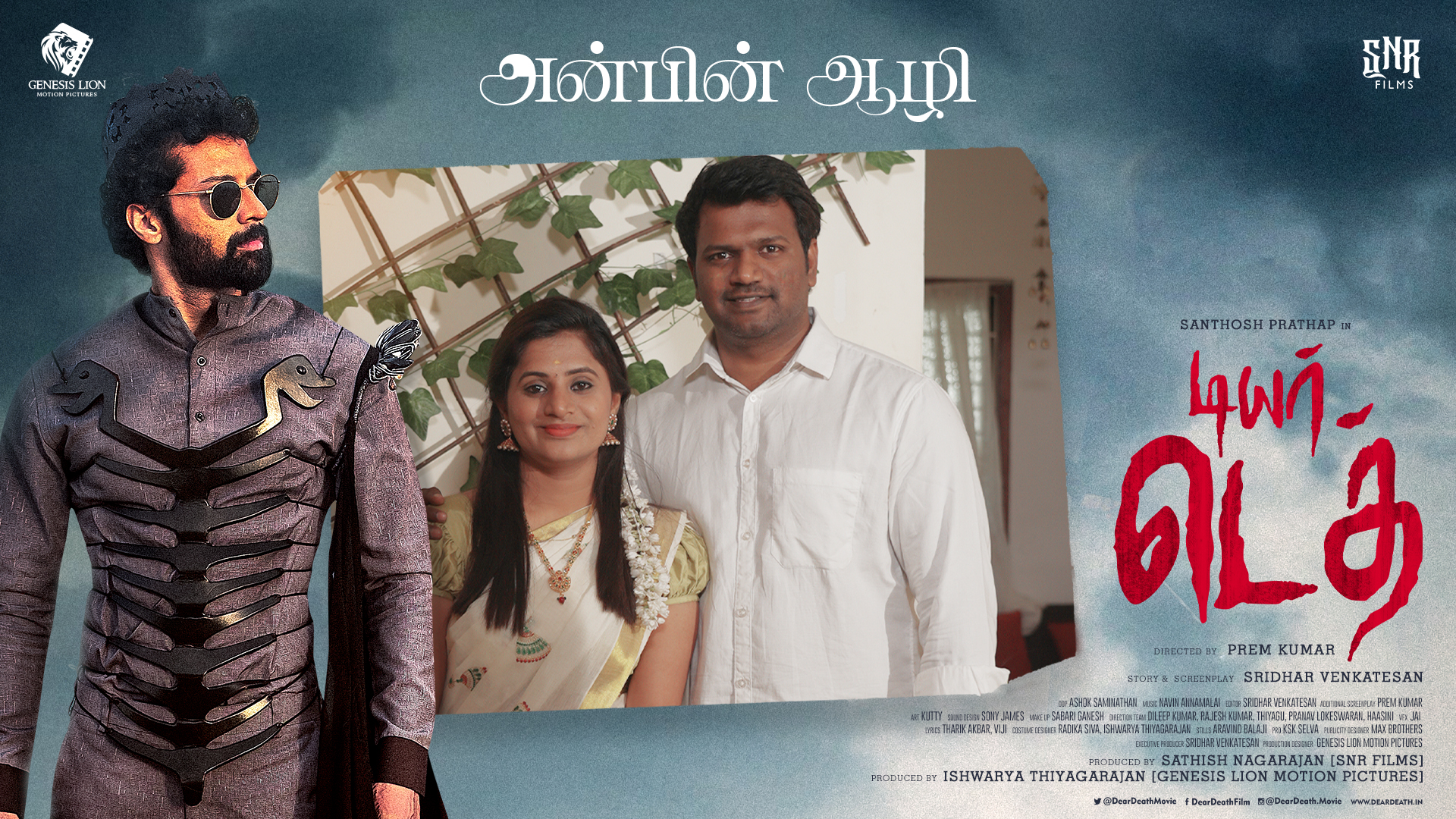
Introduction
Dear Death is a 2023 psychological thriller that delves deep into the themes of mortality, redemption, and the intricacies of human emotions. Directed by the promising filmmaker Arvind Selvaraj, this film stands out as a compelling exploration of life’s fragility and the inevitable journey toward death. With a unique narrative structure, Dear Death is a gripping, philosophical story about a man struggling to come to terms with his past, his relationships, and the meaning of life itself as he faces death in unexpected circumstances.
The plot centers around Vikram, played by Rahul Ravi, a man who is confronted with his mortality in a most unexpected way. The movie begins with Vikram’s life hanging in the balance after a tragic accident. As he lies in a coma, he enters a metaphysical space where he is forced to confront his past decisions and their consequences. What follows is an intriguing journey of self-reflection, where Vikram is given a chance to redeem himself before his inevitable demise.
Blurring the lines between life and death, reality and illusion, Dear Death poses profound philosophical questions about what happens when we stare our own end in the face. The film’s narrative unfolds in layers, capturing the internal struggles of a man forced to reckon with his actions, regrets, and emotional scars.

Honest Review
Plot and Direction
The plot of Dear Death is one that resonates on both an emotional and intellectual level. The film is set in two main realms: the physical world, where Vikram lies in a coma, and the metaphysical one, where he must confront his personal demons. As the story progresses, the film dives deeper into Vikram’s psyche, exploring his past relationships, failures, and moments of redemption. The juxtaposition of these two worlds creates a compelling and often haunting atmosphere, drawing the audience into Vikram’s journey.
The direction by Arvind Selvaraj is undoubtedly one of the film’s strongest aspects. His ability to balance the philosophical, introspective elements with gripping suspense is remarkable. Selvaraj navigates the delicate line between showcasing emotional vulnerability and creating moments of tension and fear, making for a multifaceted experience. The film’s tone shifts seamlessly between thought-provoking introspection and spine-chilling suspense, ensuring that the viewer remains hooked.
However, the film’s pacing can occasionally feel slow, especially during the more meditative sequences. The philosophical conversations, while meaningful, occasionally drag the story down, making the second half of the film feel somewhat drawn out. This is a common challenge with films that delve into complex, existential themes, and while Dear Death does manage to pull it off in the end, the slower segments may test the patience of some viewers who prefer more fast-paced narratives.
Performances
The film’s emotional core rests heavily on the performance of Rahul Ravi as Vikram. His portrayal of a man caught between life and death is both poignant and layered. Ravi manages to depict a range of emotions, from the anguish of regret to the brief flickers of hope for redemption. He is the film’s anchor, and his ability to convey the internal conflict of his character adds immense depth to the narrative.
The supporting cast also delivers commendable performances. Priya Anand, who plays Vikram’s estranged wife, Radhika, brings emotional gravity to the film, especially in their flashback sequences. Their relationship, which is central to Vikram’s journey, is explored with sincerity, and Anand’s portrayal of Radhika adds an extra layer of complexity to the story. Additionally, Nasser, who plays the enigmatic figure Death, brings a sense of mystery and gravity to his role, making him the perfect counterbalance to Vikram’s character.
The performances of the supporting characters help to round out the narrative, and the chemistry between Vikram and the other characters—especially Radhika—brings emotional authenticity to the film. The deep exploration of human connections and how they shape our actions and regrets is one of the film’s strongest themes.

Cinematography and Direction
Cinematographer K. Praveen Kumar plays a vital role in shaping the film’s overall atmosphere. The film’s visual style is a significant contributor to the psychological thriller elements, with an unsettling yet beautiful blend of dark, muted tones and bright, contrasting flashes of light. The dreamlike, surreal sequences in the metaphysical realm are beautifully shot, with the use of shadows and distorted angles heightening the sense of unease. The cinematography also effectively uses space and framing to depict Vikram’s internal conflict, making the setting itself a character in the story.
The film’s pacing and direction rely heavily on visual storytelling. Director Arvind Selvaraj uses the metaphysical realm as a backdrop for emotional exploration, creating a visually stunning and thought-provoking atmosphere. While the use of visual motifs to represent Vikram’s journey toward redemption is effective, it is not always entirely accessible. The surreal nature of the metaphysical world occasionally becomes hard to follow, with some viewers finding the transitions between realms and characters disorienting.
Music and Sound Design
The soundtrack of Dear Death, composed by A. R. Rahman, plays a crucial role in setting the tone and enhancing the emotional weight of the film. The music is hauntingly beautiful, with a mix of orchestral compositions and ethereal, minimalist scores that resonate long after the credits roll. The use of sound design is also notable, with subtle ambient sounds in the metaphysical sequences adding to the film’s otherworldly atmosphere. The overall sound design complements the visual style, amplifying the sense of tension and dread.
IMDb Rating
As of now, Dear Death holds a respectable 7.5/10 rating on IMDb. This rating reflects a positive reception from audiences and critics alike, with particular praise for the film’s philosophical undertones, emotional depth, and strong performances. However, some viewers have pointed out the film’s slow pacing and abstract narrative style as potential drawbacks. Still, the film’s focus on themes of mortality, redemption, and the human condition has struck a chord with many, making it a thoughtful and engaging watch for those interested in more profound, introspective narratives.
Budget and Box Office Success
The budget of Dear Death is estimated to be ₹20-30 crore, which is relatively modest for a psychological thriller of this nature. The film’s budget was allocated towards casting, special effects, and creating a visually rich experience. A significant portion of the budget was spent on the film’s atmospheric settings, particularly the metaphysical realm sequences, which required extensive visual effects to create a dreamlike, otherworldly environment.
At the box office, Dear Death performed reasonably well, grossing approximately ₹75-80 crore globally. The film’s success can be attributed to its thought-provoking narrative and strong performances, especially from lead actor Rahul Ravi. While it did not break any major box-office records, the film’s positive reception and critical acclaim ensured that it had a solid run, particularly in metropolitan areas where audiences are more inclined toward experimental films.
Internationally, Dear Death found success in markets such as the United States, Canada, and parts of Europe, where there is a growing interest in Indian psychological thrillers. The film’s box office success was also bolstered by its availability on streaming platforms, where it attracted viewers who prefer to watch thought-provoking content from the comfort of their homes.
Conclusion
Dear Death is a rare gem in the psychological thriller genre that combines intense emotional drama with philosophical exploration. Director Arvind Selvaraj has crafted a film that is not only a suspenseful journey into the unknown but also an introspective look at life, death, and the choices we make. The performances, particularly from Rahul Ravi, are stellar, and the film’s haunting visuals and thought-provoking narrative make it a standout experience for those looking for more than just a conventional thriller.
Despite its slower pacing and occasionally abstract narrative, Dear Death is a film that will resonate with those who enjoy deep, existential storytelling and complex character studies. Its solid box-office performance and critical acclaim suggest that it has found its audience and is likely to remain a significant part of contemporary Indian cinema. If you’re in the mood for a film that challenges your perceptions of life and death, Dear Death is a must-watch.